February 13, 2020 •
Federal Lobbyist Bundling Disclosure Threshold Increased to $19,000
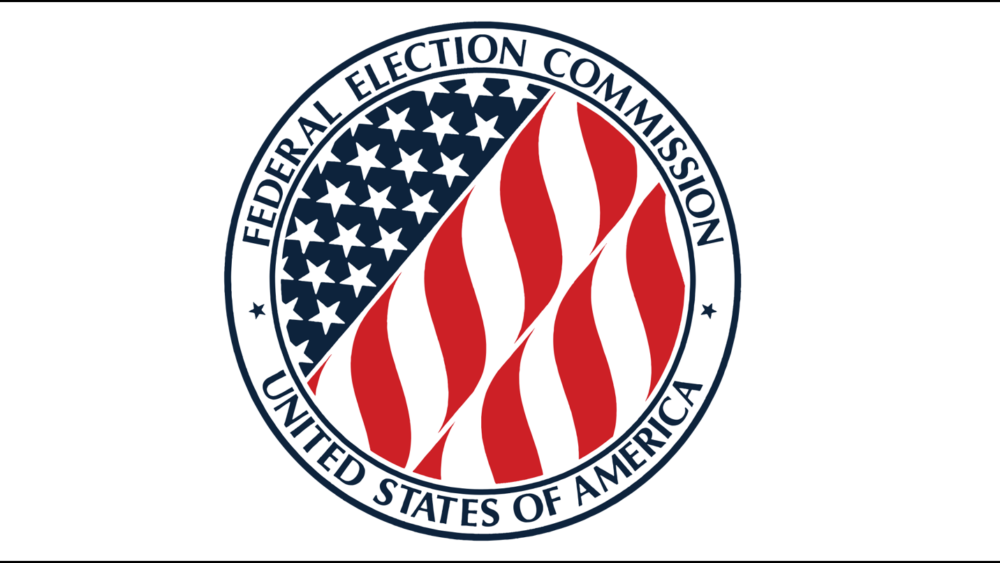
Today, the Federal Election Commission (FEC) published its price index adjustments for expenditure limitations and the federal lobbyist bundling disclosure threshold. The lobbyist bundling disclosure threshold has increased for 2020 from $18,700 to $19,000. This threshold amount is adjusted annually. […]
Today, the Federal Election Commission (FEC) published its price index adjustments for expenditure limitations and the federal lobbyist bundling disclosure threshold.
The lobbyist bundling disclosure threshold has increased for 2020 from $18,700 to $19,000. This threshold amount is adjusted annually.
Federal law requires authorized committees of federal candidates, leadership political action committees (PACs), and political party committees to disclose contributions bundled by lobbyists and lobbyists’ PACs.
Additionally, the FEC published its adjusted Coordinated Party Expenditure Limits for political parties for 2020.
March 29, 2019 •
South Dakota Governor Signs Campaign Finance Bills
Gov. Kristi Noem recently signed several campaign finance bills into law. House Bill 1189 provides any person who is subject to a Class 2 misdemeanor for campaign finance violations up to seven days to cure the violations prior to having […]
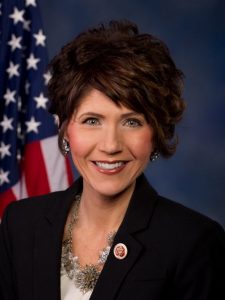 Gov. Kristi Noem recently signed several campaign finance bills into law.
Gov. Kristi Noem recently signed several campaign finance bills into law.
House Bill 1189 provides any person who is subject to a Class 2 misdemeanor for campaign finance violations up to seven days to cure the violations prior to having a charge brought against him or her.
House Bill 1092 clarifies reporting requirements for candidates.
House Bill 1143 states all political action committees established, financed, maintained, or controlled by the same person or entity are affiliated and share a single contribution limit both with respect to contributions made and contributions received.
Senate Bill 114 requires any contribution from a person who is an unemancipated minor to be deducted from the total contribution permitted by the unemancipated minor’s custodial parent or parents.
The bills become effective July 1.
March 12, 2019 •
Major Campaign Finance Reform Becomes Effective
District of Columbia Act 22-578 passed Congressional review and is now effective. The Campaign Finance Reform Amendment Act of 2018 removes the Office of Campaign Finance from the Board of Elections and establishes an independent five-member Campaign Finance Board (CFB). […]
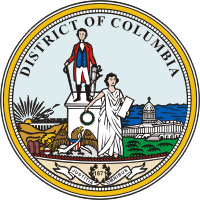 District of Columbia Act 22-578 passed Congressional review and is now effective.
District of Columbia Act 22-578 passed Congressional review and is now effective.
The Campaign Finance Reform Amendment Act of 2018 removes the Office of Campaign Finance from the Board of Elections and establishes an independent five-member Campaign Finance Board (CFB).
The Act restricts political contributions by contractors doing business with the district and addresses improper coordination between campaigns, political action committees, and independent expenditure committees.
The pay-to-play component of the bill bans campaign contributions by businesses seeking contracts of $250,000 or more.
The pay-to-play provisions take effect after the November 2020 general election.
October 25, 2018 •
Missouri Ballot Initiative to Amend Lobbying, Campaign Finance Laws
Missouri voters in the November 6 election will decide on Constitutional Amendment One, which seeks to change campaign contribution limits, gift laws, and the rules for political action committees. If passed, Amendment One would impose new contribution limits for candidates […]
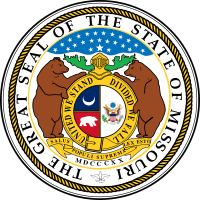 Missouri voters in the November 6 election will decide on Constitutional Amendment One, which seeks to change campaign contribution limits, gift laws, and the rules for political action committees.
Missouri voters in the November 6 election will decide on Constitutional Amendment One, which seeks to change campaign contribution limits, gift laws, and the rules for political action committees.
If passed, Amendment One would impose new contribution limits for candidates to the Missouri House and Senate. Currently, individuals and committees can contribute no more than $2,600 per election to such candidates. Amendment One would establish a limit of $2,500 for state Senate and $2,000 for state House candidates and would prevent political action committees from circumventing those limits.
Under the proposed ballot initiative, legislators and legislative employees would be banned from accepting gifts of more than $5 from lobbyists. Amendment One would also prohibit elected members and employees of the General Assembly from working as lobbyists until two years after they leave the General Assembly. Additionally, the measure would bar political fundraising on state property.
Clean Missouri is leading the campaign in support of Amendment One. The Missourians First and Advance Missouri PACS have registered to oppose Amendment One.
June 22, 2018 •
News You Can Use Digest – June 22, 2018
Federal: In Trump’s America, the Conversation Turns Ugly and Angry, Starting at the Top WRAL – Peter Baker and Katie Rogers | Published: 6/20/2018 The politics of rage that animated President Trump’s rise now dominate the national conversation, as demonstrated […]

Federal:
In Trump’s America, the Conversation Turns Ugly and Angry, Starting at the Top
WRAL – Peter Baker and Katie Rogers | Published: 6/20/2018
The politics of rage that animated President Trump’s rise now dominate the national conversation, as demonstrated during the debate over his immigration policy that separated children from parents apprehended at the border. Harsh discourse in American politics is not new, but rarely has the president himself set the tone from the top in the way Trump does. Christine Porath, a Georgetown University professor and author of “Mastering Civility,” said the current harsh climate was affecting people beyond politics, injecting itself into everyday life at home and work. “It seems like people are not only reciprocating, but we tend to stoop lower rather than higher – it’s really putting us in an unfortunate place,” said Porath.
Pence Turns VP’s Office into Gateway for Lobbyists to Influence the Trump Administration
Seattle Times – Michael Scherer, Josh Dawsey, and Anu Narayanswami (Washington Post) | Published: 6/15/2018
About twice as many companies and other interests hired lobbyists to contact the vice president’s office in Mike Pence’s first year than in any single year during the tenures of Vice Presidents Joe Biden and Richard Cheney. The approach has allowed Pence to emerge as a key ally for corporations inside the Trump White House even as the president vows to “drain the swamp.” Pence’s inner circle includes friends, donors, and former staffers who are among the lobbyists in regular contact with the vice president’s office. In several cases, the relationships are mutually beneficial, with lobbyists who have charged clients millions of dollars to access his office donating money to Pence-backed political causes.
Women Speak of Pervasive Harassment in DC Lobbying Culture
The Hill – Megan Wilson | Published: 6/19/2018
For K Street denizens, deals are often done over dinner or drinks, on business travel, or retreats. Much like Capitol Hill, the lobbying industry remains dominated by men, creating an environment where women say they are often subject to harassment and worse. Unlike in other industries, few women have been willing to come forward to talk about it. The Hill reached out to women on K Street, asking whether they had similar stories to those surfacing as part of the “Me Too” movement. More than a dozen women spoke about instances of sexual harassment or assault they say they have faced while working as lobbyists and political operatives, and in public relations.
Zinke Linked to Real Estate Deal with Halliburton Chairman
Politico – Ben Lefebvre and Nick Juliano | Published: 6/18/2018
U.S. Interior Secretary Ryan Zinke’s family is involved in a land deal with Halliburton Chairperson David Lesar, whose company does business with the Interior Department. A charitable foundation created by Zinke and run by his wife, Lola, is allowing a company co-owned by Lesar and his family to use a portion of its land in Whitefish, Montana, as a parking lot for the development. The Zinkes also own land on the other side of the development, and have long sparred with neighbors about their various plans for it. If the new hotel, retail stores, and microbrewery go through, real estate agents say, the Zinke-owned land next door would stand to increase substantially in value.
From the States and Municipalities:
Arkansas: Legislator-Graft Case Spotlights Arkansas Ethics-Law Flaws
Arkansas Online – Doug Thompson | Published: 6/18/2018
A lobbyist whose firm spent $3.5 million in Arkansas reported total legislator-related expenses of only $12,170 from 2010 to 2017, a comparison of his federal guilty plea and state ethics records show. Milton “Rusty” Cranford could spend up to 10 years in federal prison after pleading guilty to one count of federal program bribery. What changes the state Ethics Commission will recommend in light of events uncovered by federal investigators have not been determined, Executive Director Graham Sloan said. He said ethics laws leave reporting of lobbying and campaign expenses up to the entities involved, and the system relies on voluntary compliance, and people reporting noncompliance to the commission. Any change in that system would require new law, Sloan said.
California: ACLU Suit Targets Law That Bars Horn Honking at Protests
San Diego Union Tribune – Teri Figueroa | Published: 6/14/2018
When Susan Porter beeped her car horn in support of a political protest in San Diego last year, she quickly found herself pulled over and ticketed. According to the state vehicle code, horns are to be honked only for safety reasons or as part of a car alarm. Now, the American Civil Liberties Union of San Diego and Imperial Counties is asking a federal judge to find that state law unconstitutional, arguing in a newly filed lawsuit that preventing such honking chills free speech. The suit argues Porter is “censoring herself by refraining from using her vehicle horn for expressive purposes,” including supporting political rallies.
Colorado: Colorado Enacts Replacement Campaign Finance Enforcement System
National Law Review – Andrew Garrahan | Published: 6/19/2018
A federal court recently held that Colorado’s system for enforcing its campaign finance laws was unconstitutional. The secretary of state’s office has now enacted temporary enforcement rules, effective immediately. Under the new rules, any person may file a complaint, just like under the old system. But the rules now include three protections that attempt to prevent abuse of the system for political purposes. In addition to the enforcement changes, the new rules also establish a formal system for seeking advisory opinions on campaign finance issues.
Florida: A Persistent Gadfly Wins Again in the Supreme Court
WRAL – Adam Liptak (New York Times) | Published: 6/18/2018
The U.S. Supreme Court gave a civic activist in Florda another shot at proving his arrest at a city council meeting was in retaliation for his criticism of public officials. The court said it was ruling narrowly for Fane Lozman, whose battles with the Riviera Beach City Council had become legendary. It said a lower court had been wrong to stop his retaliation lawsuit. The case grew from an attempt to cut Logan off at a council meeting into a major free-speech showdown that carried nationwide implications for citizens arrested, as Lozman was, by government officials whom they criticize.
Georgia: Candidate for Georgia Governor Bought Condo from Lobbyist
New York Times – Kevin Sack | Published: 6/14/2018
A Republican candidate for Georgia governor reportedly bought an Atlanta condominium from a lobbyist at what appeared to be a discount. The New York Times, citing real estate records, says Lt. Gov. Casey Cagle purchased the condo 10 years ago at 24 percent less than its appraised value. It was bought from Terry Hobbs, a lobbyist who represents natural gas marketer SCANA. Cagle sold the condo last year at a 29 percent profit. As lieutenant governor, Cagle presides over the Senate and controls the flow of legislation there. Cagle said the sale was “a legitimate transaction” and Hobbs had not lobbied him on any issue around the time of the sale.
Kansas: Judge Slams Kobach for Flouting Court Rules
Politico – Josh Gerstein | Published: 6/18/2018
A federal judge permanently struck down Kansas’s proof-of-citizenship voter registration law, rebuking Kansas Secretary of State Kris Kobach, one of the country’s most vocal advocates of voter-ID laws. U.S. District Court Judge Julie Robinson said the state’s requirement that voters show proof of citizenship during registration violated both the Constitution and the National Voter Registration Act. Robinson struck down the law and ordered Kobach to take six additional hours of continuing legal education that “pertain to federal or Kansas civil rules of procedure or evidence.” In an earlier ruling, Robinson held Kobach in contempt for skirting court orders related to the law and failing to send postcards confirming registration for thousands of voters.
Kentucky: Kentucky Man Gets 30-Day Sentence in Attack on Senator Rand Paul
Reuters – Suzannah Gonzales | Published: 6/19/2018
U.S. Sen. Rand Paul’s neighbor was sentenced to 30 days in prison for tackling the lawmaker while he was out doing yard work at his Kentucky home. Paul, who suffered broken ribs, had hoped for a harsher penalty. He said in a statement that the 21 months in prison sought by prosecutors “would have been the appropriate punishment.” Rene Boucher pleaded guilty to assaulting a member of Congress in the attack. Boucher said he was triggered by Paul repeatedly stacking debris near their property line in Bowling Green and “lost his temper.” Boucher must serve a year of supervised release after the prison time, stay away from the Paul family, and pay a $10,000 fine.
Maryland: Candidate’s Relationship with Talk Radio Station Raises Questions About Campaign Finance
Baltimore Sun – Libby Solomon | Published: 6/18/2018
Nino Mangione’s family owns talk radio station WCBM 680. He is the station’s web manager. Until April, he even hosted a weekly, hourlong talk show. But Mangione is also running to be a state delegate, a situation one of his opponents said is problematic. “… He’s using his family-owned media platform to promote his own candidacy, and doesn’t seem to understand the conflict of interest involved,” said Justin Kinsey. Mangione said when the WCBM website posts stories about his campaign, it is just reporting the news, not advertising his campaign. Attorney Andy Levy said the relationship could potentially be considered an in-kind campaign contribution, subject to reporting requirements and limits.
Massachusetts: City Council Offers Own Lobbying Bill, Straying from Marty Walsh’s Proposal
Boston Globe – Milton Valencia | Published: 6/19/2018
Boston City Council members Michelle Wu and Michael Flaherty introduced a new lobbying ordinance. The proposal would require lobbyists and their clients to file notices with the city and pay an annual fee: $1,000 for a lobbyist and $500 for a client. They would have to file quarterly reports. A plan to reform the city’s lobbying law was proposed by Mayor Martin Walsh two years ago with a home rule petition that needed the state Legislature’s approval. Wu and Flaherty are proposing a local ordinance, which needs approval from only the council and mayor. But the versions are different enough to raise questions whether a deal can be reached on any changes to the city’s minimal lobbyist registration and disclosure requirements.
Ohio: Convicted Ohio Republican Businessman’s Company Targets Democrats
Philadelphia Inquirer – Julie Carr Smyth (Associated Press) | Published: 6/20/2018
Ben Suarez, an Ohio direct-marketer who was convicted of witness tampering in a campaign finance investigation, is organizing an operation to retaliate against the prominent Democrats he blames for putting him in prison. A memorandum lays out The Justice Association’s strategy for a lawsuit and ad campaign targeting U.S. Sen. Sherrod Brown, who is running for re-election this year, and former U.S. Attorney Steven Dettelbach, the Democratic nominee for state attorney general. It calls them “chief culprits” in a vast effort by Democrats to unjustly prosecute Republican-owned companies under former President Obama.
West Virginia: West Virginia Supreme Court Justice Indicted in Investigation He Initiated
Governing – Lacie Pierson (Tribune News Service) | Published: 6/21/2018
West Virginia Supreme Court Justice Allen Loughry, who wrote a book on political corruption in the state, was arrested by FBI agents and faces 22 charges alleging fraud, witness tampering, and lying to investigators. The indictment says Loughry used a state vehicle and credit card for personal use, including trips to visit family. It says Loughry also sought mileage reimbursements for trips even though he drove a state vehicle and used a government credit card for gas. He was accused of moving a leather couch and a valuable desk from the Supreme Court office to his home, and of lying to federal agents about his actions and trying to influence an employee’s testimony. Loughry has been suspended without pay.
October 12, 2017 •
St. Petersburg City Council Passes Controversial Campaign Finance Law
City lawmakers have passed an ordinance to limit the influence of independent expenditures in local elections. By a 6-2 vote, City Council approved a measure to limit contributions from individuals to PACs involved in city elections and to restrict contributions […]
 City lawmakers have passed an ordinance to limit the influence of independent expenditures in local elections.
City lawmakers have passed an ordinance to limit the influence of independent expenditures in local elections.
By a 6-2 vote, City Council approved a measure to limit contributions from individuals to PACs involved in city elections and to restrict contributions from foreign-owned corporations with U.S.-based subsidiaries.
Supporters of the ordinance hope it will be a model law for other cities to stem the flow of money in politics after Citizens United.
Many believe a legal challenge is likely, but the drafters of the ordinance, a nonprofit group called Free Speech for People, are confident the language is constitutional under current campaign finance jurisprudence.
November 28, 2016 •
DC Council Member to Introduce Emergency Legislation for Campaign Finance Reforms
D.C. Council Member Kenyan McDuffie announced his plan to introduce emergency legislation to ban contributions to political action committees during non-election years. There are currently other bills pending before the council that also seek to close this same campaign finance […]
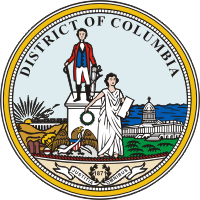 D.C. Council Member Kenyan McDuffie announced his plan to introduce emergency legislation to ban contributions to political action committees during non-election years.
D.C. Council Member Kenyan McDuffie announced his plan to introduce emergency legislation to ban contributions to political action committees during non-election years.
There are currently other bills pending before the council that also seek to close this same campaign finance loophole, but they only had their first public hearings Nov. 16 and are unlikely to pass before the start of 2017.
McDuffie’s emergency bill would bypass many of the steps ordinarily required.
January 8, 2016 •
Michigan Governor Signs Senate Bill 571
This week, Governor Snyder signed Senate Bill 571, a bill that affects what public officials and organizations can and cannot do within 60 days of an election. The bill prohibits local officials from publicly discussing ballot proposals or millage issues […]
 This week, Governor Snyder signed Senate Bill 571, a bill that affects what public officials and organizations can and cannot do within 60 days of an election. The bill prohibits local officials from publicly discussing ballot proposals or millage issues in the 60 days leading up to an election.
This week, Governor Snyder signed Senate Bill 571, a bill that affects what public officials and organizations can and cannot do within 60 days of an election. The bill prohibits local officials from publicly discussing ballot proposals or millage issues in the 60 days leading up to an election.
Despite approving the bill, Snyder urged the Legislature to pass further legislation clarifying some key provisions of the bill that some say infringe on protected free political speech. The 53 page bill was originally much shorter until last minute amendments were passed with no public hearings. Senate Bill 571 also eliminates the need for February quarterly reports for political action committees.
September 9, 2014 •
Judge Enjoins Enforcement of Wisconsin Candidate Limits
A federal judge entered a preliminary injunction in favor of a conservative group challenging the state’s limits on the amount candidates can collect from political action committees. The group argued the limits infringed upon its First Amendment free speech rights. […]
 A federal judge entered a preliminary injunction in favor of a conservative group challenging the state’s limits on the amount candidates can collect from political action committees. The group argued the limits infringed upon its First Amendment free speech rights.
A federal judge entered a preliminary injunction in favor of a conservative group challenging the state’s limits on the amount candidates can collect from political action committees. The group argued the limits infringed upon its First Amendment free speech rights.
The judge agreed and issued a preliminary injunction preventing the Government Accountability Board from enforcing the limit.
February 28, 2012 •
Supreme Court Upholds Maine Campaign Finance Law
Laws Found Constitutional
 The U.S. Supreme Court has rejected a challenge to Maine election laws brought by the National Organization for Marriage claiming Maine’s reporting requirements for political action committees are vague and over-broad.
The U.S. Supreme Court has rejected a challenge to Maine election laws brought by the National Organization for Marriage claiming Maine’s reporting requirements for political action committees are vague and over-broad.
The Supreme Court let stand the 1st Circuit Court of Appeals’ decision to uphold the constitutionality of the laws requiring the disclosure of contributions and expenditures in elections by PACs and by independent groups.
Maine defended its laws by arguing the laws were designed to inform voters about who is spending money to influence their votes.
State and Federal Communications, Inc. provides research and consulting services for government relations professionals on lobbying laws, procurement lobbying laws, political contribution laws in the United States and Canada. Learn more by visiting stateandfed.com.

